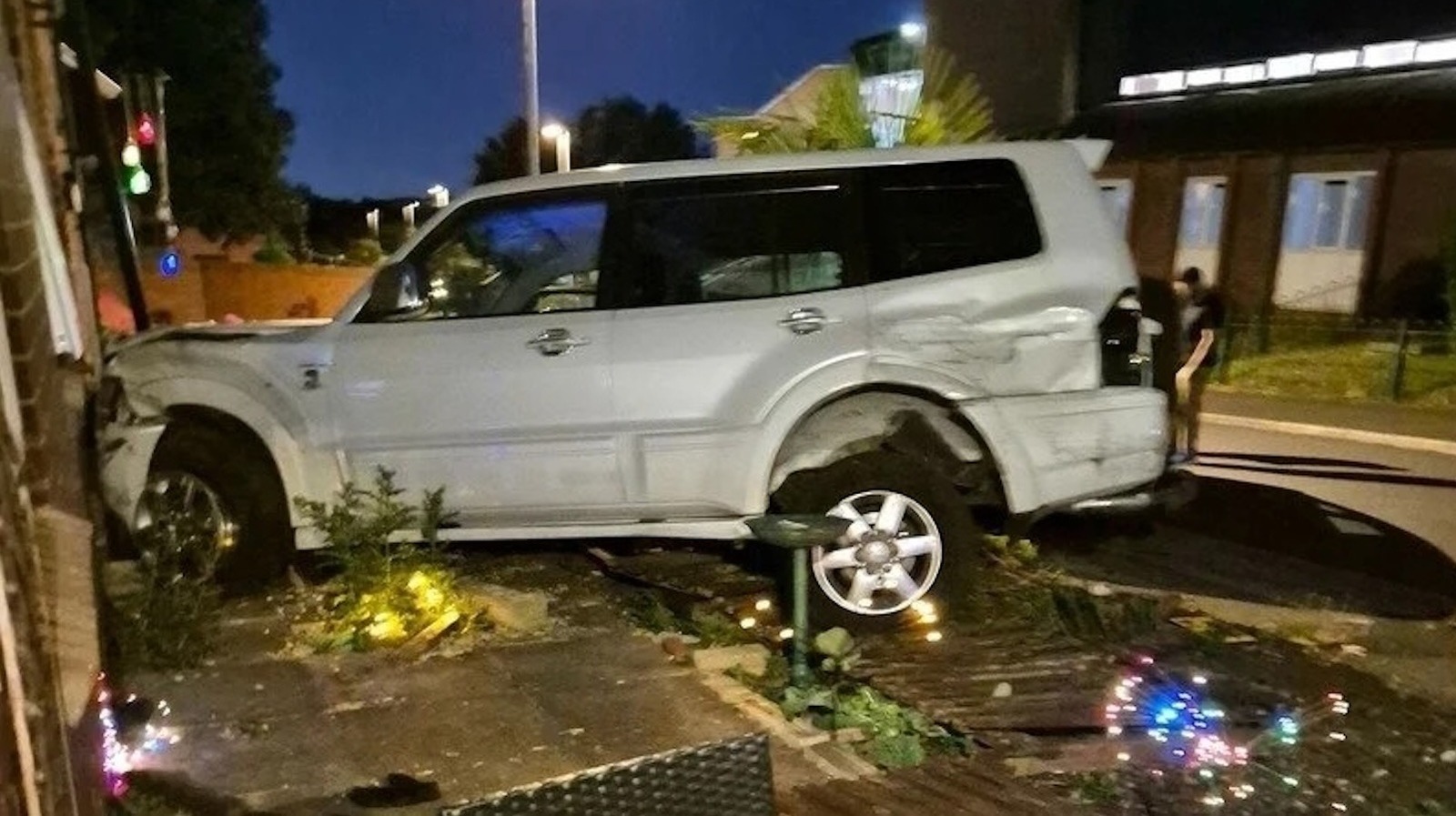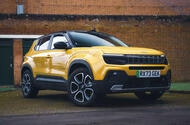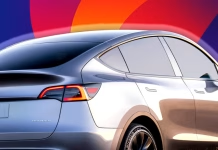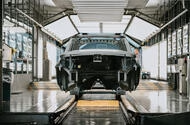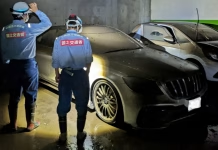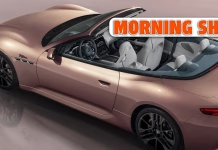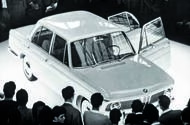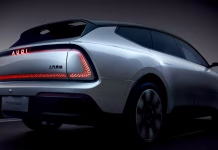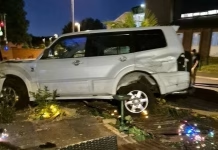Electric Eclipse Cross debuts with sleek design and Renault-inspired style
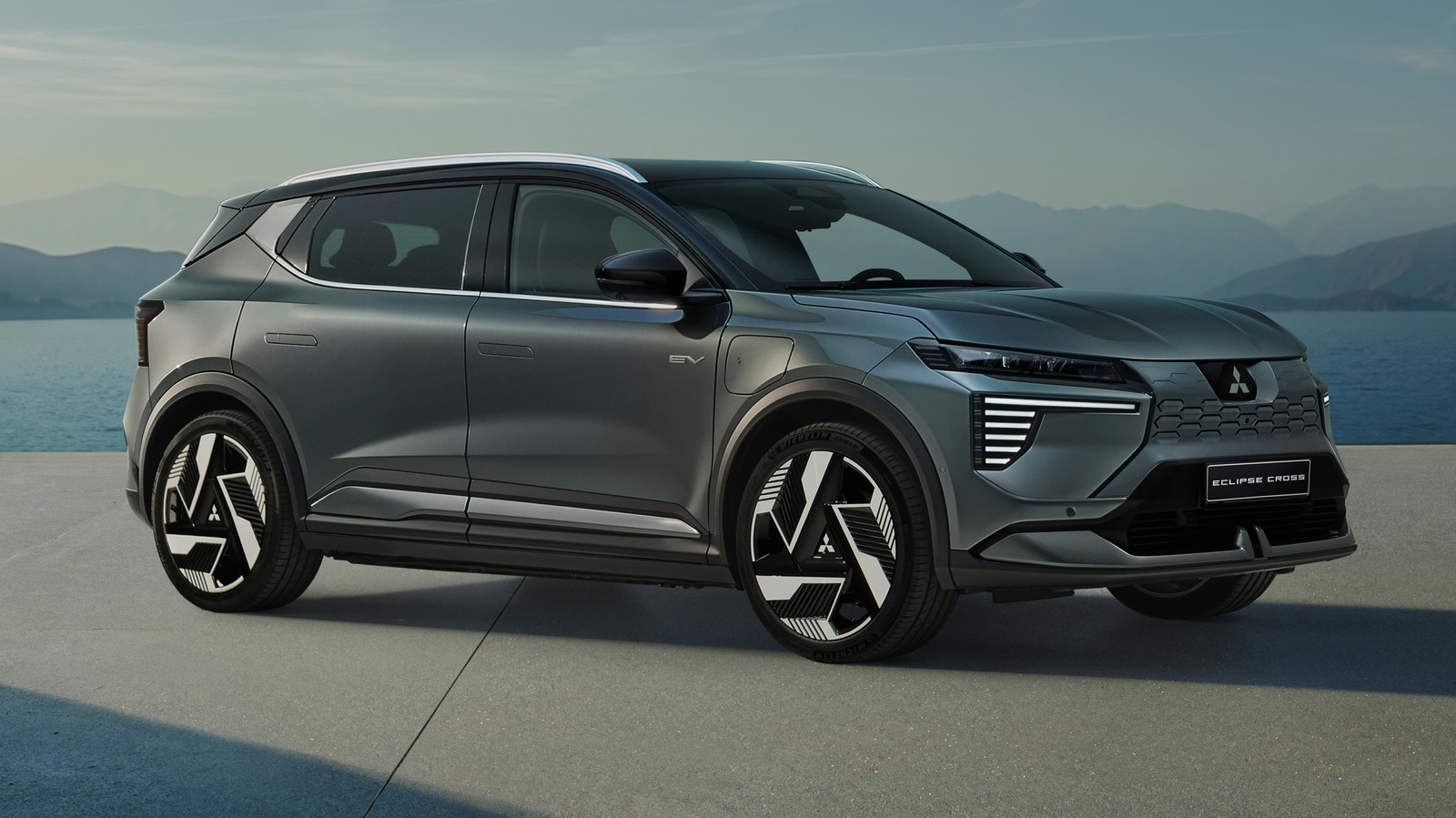
Jeep Avenger EV Discount Slashes Prices by £3750 to Match Electric Car Grant
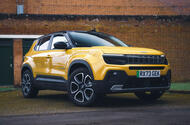 Avenger has yet to qualify for the Electric Car Grant but Jeep has matched its maximum discount for a short period
Avenger has yet to qualify for the Electric Car Grant but Jeep has matched its maximum discount for a short period
Jeep has cut the price of the electric Avenger by £3750 following the introduction of the government’s Electric Car Grant (ECG), for which it has yet to qualify.
The discount has been applied to all trim levels of the EV, meaning its price now ranges from £26,249 for the entry-level Longitude model to £30,249 for a range-topping Summit.
Jeep will also make a £1500 deposit contribution toward financing on the Avenger Summit when a buyer chooses a 0% APR contract, which requires a 20% down payment. This results in a monthly payment of £270 for the model.
The discounts and finance contributions will be available until 30 September.
Jeep is the latest in a line of manufacturers who do not yet qualify for the ECG but have introduced their own discount. Chinese brand Leapmotor moved first, cutting prices by £3750 to match the maximum discount provided by the grant, and it was soon followed by Alfa Romeo, MG and GWM, among others.
The criteria for electric cars to receive the grant are based on minimum sustainability criteria, including the manufacturer being signed up to the Science-Based Targets initiative for carbon emissions reduction. For those that qualify, the grant provides either £3750 or £1500 based on the emissions created by the production of the car and its battery.
Only two models currently qualify for the full £3750 grant: the Ford Puma Gen-E and the related Ford E-Tourneo Courier. A further 26 cars receive a £1500 discount.
Several manufacturers that have yet to be included in the scheme have hit out against its perceived preferential treatment of European manufacturers.
Stella Li, chief of the European arm of Chinese manufacturer BYD, recently told Autocar that it was “not fair to consumers” because of its effective exclusion of Chinese brands.
“They did that more to target Chinese firms, which is not fair to consumers," she said. "But we have to deal with that. We are not afraid, because I'm sure our sales numbers will continue increasing every single month.”
Tesla Model Y Door Handle Flaws Spark Safety Lawsuit and Federal Investigation
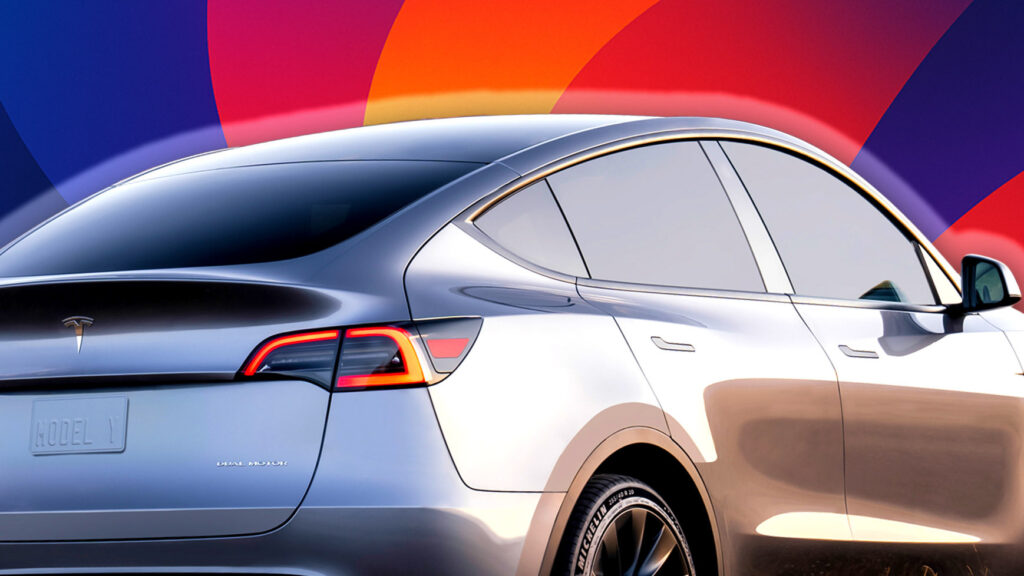
Optimus AI Head Departure Raises Questions About Tesla Project Stability

JLR Hack Disrupts Global Production as UK Government Races to Restore Operations
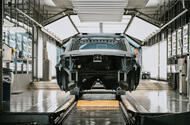 No new Land Rover cars have been produced since 1 September cyber attack; issues affecting JLR globally
No new Land Rover cars have been produced since 1 September cyber attack; issues affecting JLR globally
The UK government has officially stepped in to help JLR as it looks to restart car production following a cyber attack that has severely affected the firm's operations.
On Tuesday, the Jaguar and Land Rover company said it would attempt to restart production lines from 24 September. No cars have been built globally since the 1 September hack.
A statement from UK trade body the Society of Motor Manufacturers and Traders (SMMT) now confirms the government is helping the effort, as JLR continues to rebuild the internal computer systems that were infiltrated.
As well as aiding moves to restart production, government cyber experts are helping to assess “any impacts on the supply chain”, which workers’ union Unite claimed on Wednesday was at the brink of collapsing.
The SMMT statement said: "The recent cyber incident is having a significant impact on Jaguar Land Rover (JLR) and on the wider automotive supply chain.
"The government, including government cyber experts, are in contact with the company to support the task of restoring production operations, and are working closely with JLR to understand any impacts on the supply chain.”
The attack on 1 September has left JLR incapacitated. It has led to production shutdowns at all of JLR's global plants, created issues with parts ordering and stifled retailers.
The effect could be costing JLR up to £5 million a day, business economics professor David Bailey told Autocar last week.
Since the cyber attack, the majority of JLR’s employees have been off work, with lost hours being banked.
Union Unite said on Wednesday that employees within the supply chain are being told to apply for Universal Credit as they are moved onto reduced or zero-hours contracts by employers battling to stay afloat.
Earlier reports suggested that some suppliers “will go bust” as a result of the ongoing issues at JLR.
Unite general secretary Sharon Graham said the union has written to the UK government demanding it set up a furlough scheme to take the pressure off suppliers by supplementing workers’ pay packets while they’re unable to do their jobs.
“Workers in the JLR supply chain must not be made to pay the price for the cyber attack,” said Graham. “It is the government’s responsibility to protect jobs and industries that are a vital part of the economy.”
Graham cited a similar scheme set up on 15 September by the Scottish government to support bus maker Alexander Dennis and said “a similar scheme for workers in the JLR supply chain [should be set up] now”.
JLR suppliers 'could go bankrupt'
Recent reports have claimed that some of the firm's suppliers could go bust as a result of the shutdowns.
Former Aston Martin CEO Andy Palmer told the BBC on 12 September: “I would not be at all surprised to see bankruptcies.”
Palmer added that many suppliers will soon begin to slim their staff count as a result of the shutdown, saying: “You hold back in the first week or so of a shutdown; you bear those losses. But then you go into the second week, more information becomes available – then you cut hard. So layoffs are either already happening or are being planned."
Along with Unite, another making the call for a furlough scheme is Commons Business and Trade Committee chairman Liam Byrne.
The Labour MP said: "What began in some online systems is now rippling through the supply chain, threatening a cashflow crunch that could turn a short-term shock into long-term harm. We cannot afford to see a cornerstone of our advanced manufacturing base weakened by events beyond its control."
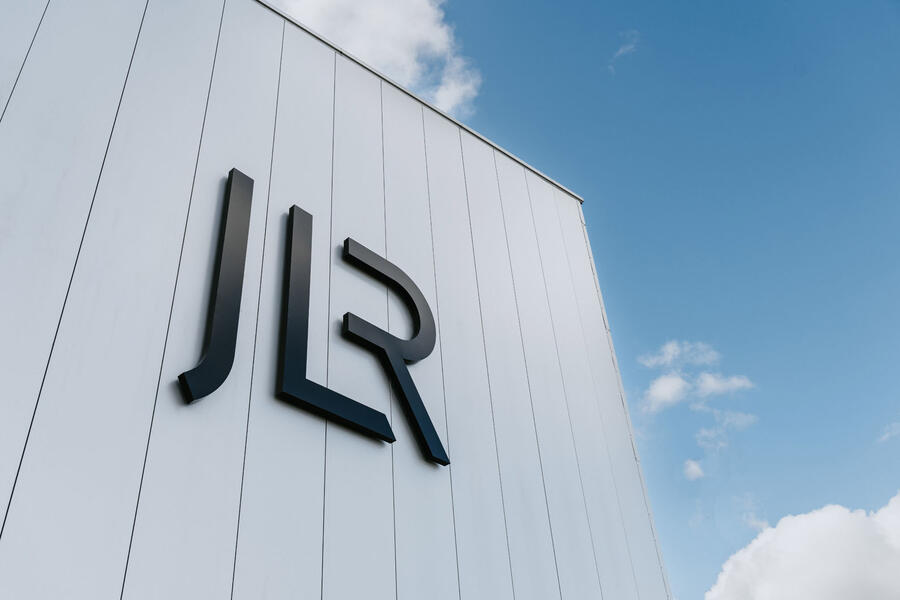
JLR hack: what happened?
Autocar first reported issues affecting JLR on 1 September, when dealers couldn't register new cars on 'new plate day' , traditionally one of the year's busiest for registrations.
In an effort to combat the hack, JLR began “shutting down our systems” on 2 September.
It's still in the process of rebuilding them and is unabel to confirm a timescale for the fix.
The hack has left JLR incapacitated. No cars have been produced globally since, leading to millions of pounds of lost income.
The extent of the issues meant JLR brought police and cybersecurity experts in to “restart our global applications in a controlled and safe manner”.
During this process, which included an investigation, it was discovered that "some data" was "affected", said JLR. Those affected will be contacted, said the firm.
It's not officially known what data was taken or if a ransom demand has been made, but it is thought it most likely involves customer data given the involvement of the police.
JLR said in a statement on 15 September that it will look to restart production on 24 September.
Who has claimed responsibility for JLR hack?
On 3 September, a group of hackers calling themselves Scattered Lapsus$ Hunters claimed responsibility for the attack on JLR.
This is the same group that hacked Marks & Spencer in May, causing the British retailer seven weeks of disruption and costing £300 million in lost operating profit.
It claimed to have obtained customer data after exploiting a similar flaw in JLR’s IT system. The claim was made on a Telegram messenger group, where a user linked to the hackers posted a screenshot of what appeared to show JLR's internal system.
A member of the group revealled that a well-known flaw in SAP Netweaver, third-party software used by JLR, was exploited to access the data.
The US's Cybersecurity and Infrastructure Security Agency warned about the flaw earlier this year. An update for the software was released, but whether JLR applied it is unknown.
It's also not known what data was taken or if a ransom demand has been made of JLR.
Flooding in Japan Destroys 274 Cars in Underground Garage After Record Rainfall
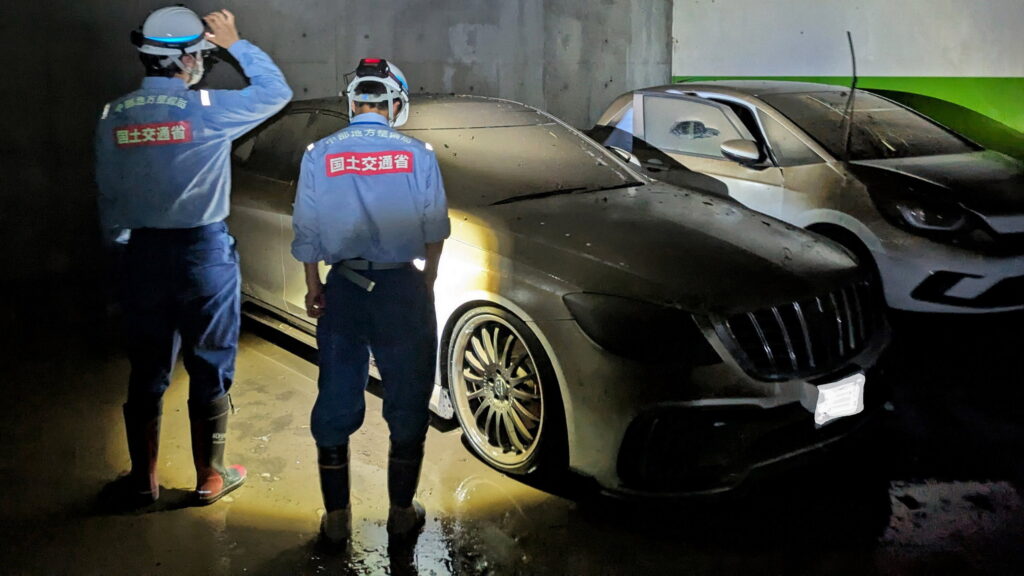
Maserati drops all electric plans as Subaru ends Legacy production in the US
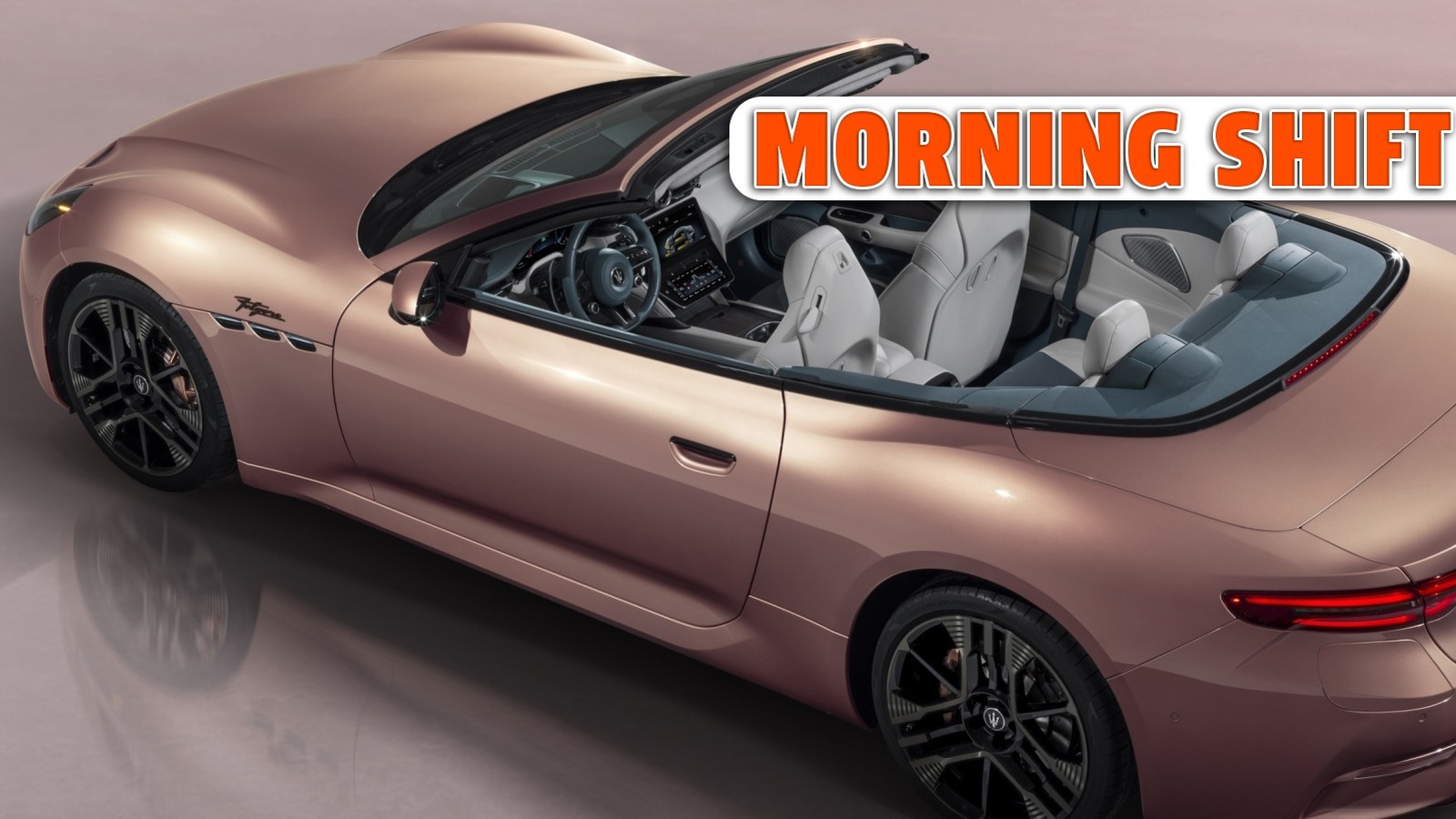
BMW Neue Klasse Revival How a 1960s Saloon Saved the Brand and Shaped German...
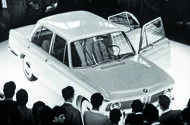 BMW was in financial difficulty in the 1960s - until the Neue Klasse saloon turned up
BMW was in financial difficulty in the 1960s - until the Neue Klasse saloon turned up
BMW has recently revealed its new iX3 SUV at the Munich motor show, as the first member of its 'Neue Klasse' of EVs. These cars are critical for the company's future just as the original 'Neue Klasse' of mid-sized saloons was back in the early 1960s, when BMW found itself under serious financial pressure.
It was the 1961 Frankfurt show where the public first saw a Neue Klasse saloon, giving a "tremendous reception" to the "very elegant and well-appointed", Michelotti designed 1500. "If the estimated price of £760 [£14,650 in today's money] and dry weight of 1005kg can be maintained, its success seems assured," reported Autocar.
Also new on the BMW stand was the 3200 CS luxury coupé, designed by Bertone and powered by a 160bhp 3.2-litre V8, costing £2650 serving as a striking contrast to Munich's popular miniature 600, at £622.
Yet it was Volkswagen that was the centre of attention, with its own new 1500. Also known as the Type 3, this was the first all-new car from Wolfsburg since the seminal Type 1 'Beetle', conceived way back in the 1930s. "The VW 1500 is undoubtedly very cleverly conceived, and the standard of finish is very high," we said but we did fear that the poor refinement of an air-cooled engine couldn't cut it in the 1.5-litre class, especially when at £567 it cost a bit more than its Ford and Opel rivals.
Enjoy full access to the complete Autocar archive at the magazineshop.com
The estate version "seemed a much better proposition" than the notchback. Sadly the smart-looking cabriolet version never would come to fruition, but then Volkswagen already offered such a product in the "well-styled" Karmann Ghia, the new 1500 version of which (easily distinguished by two extra front lights) was also on its stand.
Mercedes-Benz surprised show attendees with a new cabriolet of its own, a rag-top version of its recently launched six-cylinder 220 SE coupé (W111 generation). Of even greater interest, however, were the new 190 (W110) and 300 SE (W112) saloons, think E-Class and S-Class. "The 190 is very good value for money at £890 and is noticeably more refined than its predecessor," we said. "Although the 300 SE is expensive, at £2150, its specification has a big sales appeal."
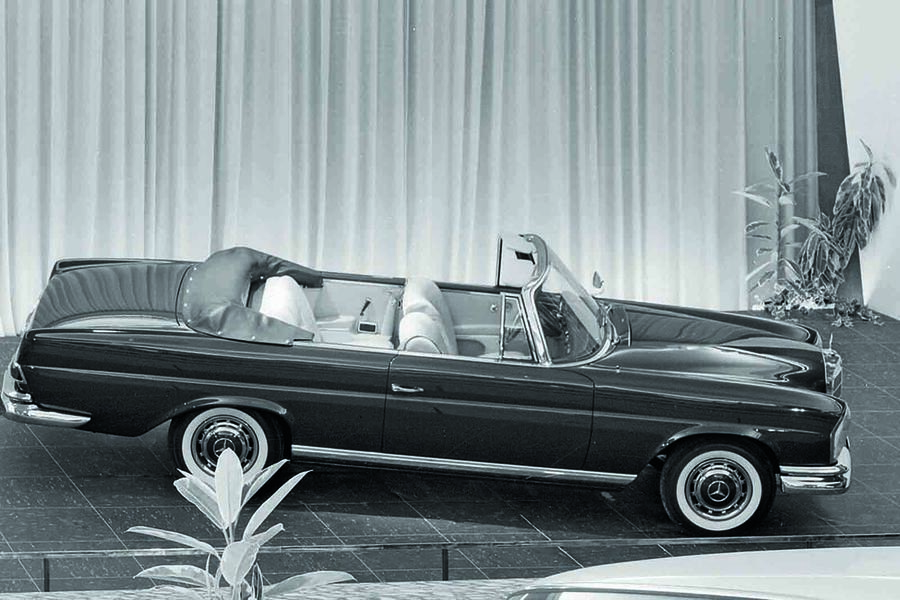
Auto Union (the forerunner of today's Audi) had no new model to show but created a lot of interest in a new Bosch-developed oiling system, which "eliminates the annoyance of pre-mixing it with the fuel" and let the ratio be cut from 1:40 to 1:100 and to be standard on most UK cars.
Ford of Cologne (then a distinct car maker) had "enjoyed a very big success" in its first year selling the Taunus 17M P3 family saloon, and at Frankfurt it introduced a higher-performance version, the TS, with an extra 60cc and separate front seats.
Its Rüsselsheim rival Opel countered with a coupé version of its own 1.7-litre offering, the year-old Rekord P2, "but it is not a very attractive car", we stated, "the lines of the new roof conflicting with those of the main shell, which is the same as that of the four-door".
The smaller German companies all had fresh wares to exhibit, too. NSU unleashed a major update on its Prinz miniature saloon: "The new body has enabled passenger accommodation to be increased significantly, and a great deal of work has gone into reducing the noise level of the rear-mounted, twin-cylinder, air-cooled engine."
Porsche made several detail changes to its Beetle-based 356B sports car most prominently the standardisation of the race-inspired Carrera version's twin intake grilles and added a new Carrera 2 model with a bigger, 2.0-litre engine.
And Glas sought to offset falling sales of its ultra-cheap, two-stroke Goggomobil with a new 1.0-litre four-cylinder coupé, the S-1004.
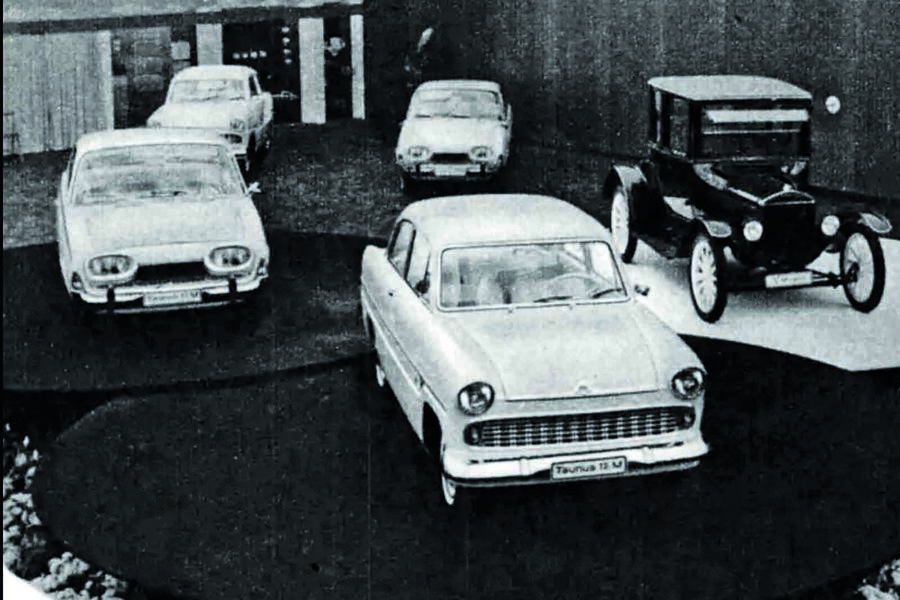
French, Italian and British car makers were naturally also looking to capitalise on the growth of West Germany's economy so unlikely and so rapid that it would become known as the 'economic miracle'. The most impressive Brit was the sporty new BMC Mini-Cooper, two of which were raced to Frankfurt at an average of 70mph from Aachen and Hamburg by a team of four race and rally drivers (one of whom was future F1 champion Graham Hill).
The one notable absentee was Germany's own Borgward, which had produced almost twice as many cars as BMW in 1960 but had recently ceased operations amid a controversial bankruptcy case.
The Bremen company's beautiful Isabella had been one of the most popular upmarket models and it was in this vacuum that the Neue Klasse would bloom, setting BMW onto the path to not just survival but eventually vast expansion.
"In terms of output, the West German motor industry is now the largest in Europe and heading world statistics in the number of exports," concluded Autocar. "Gone are the times of the happy-go-lucky small manufacturers, and the new slogan appears to be concentration."
Audi E5 Sportback Delivers Stunning Range and Power at a Surprisingly Low Price in...
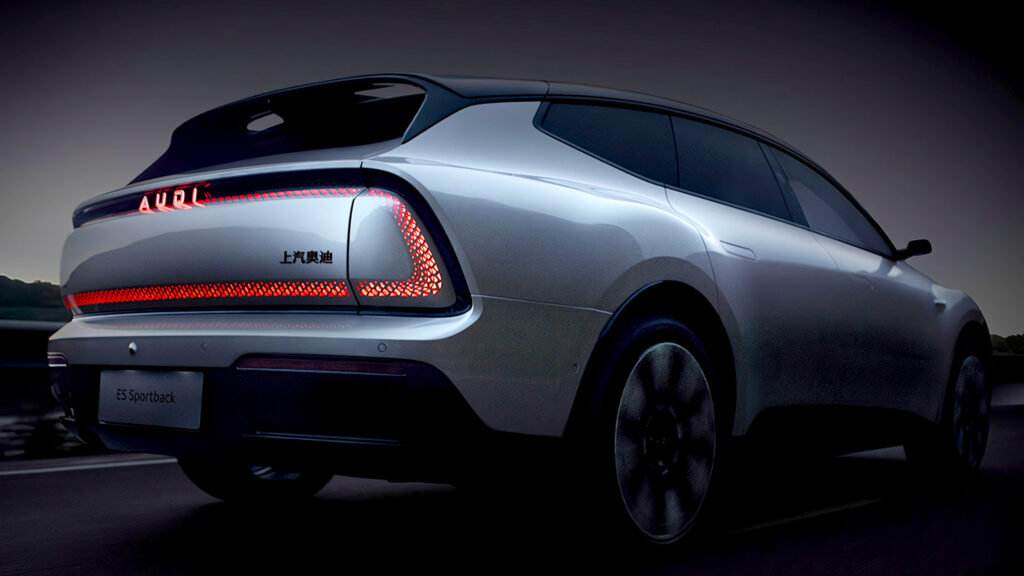
Police Chases Highlight Dangers as High-Speed Pursuit Crashes Into Home
